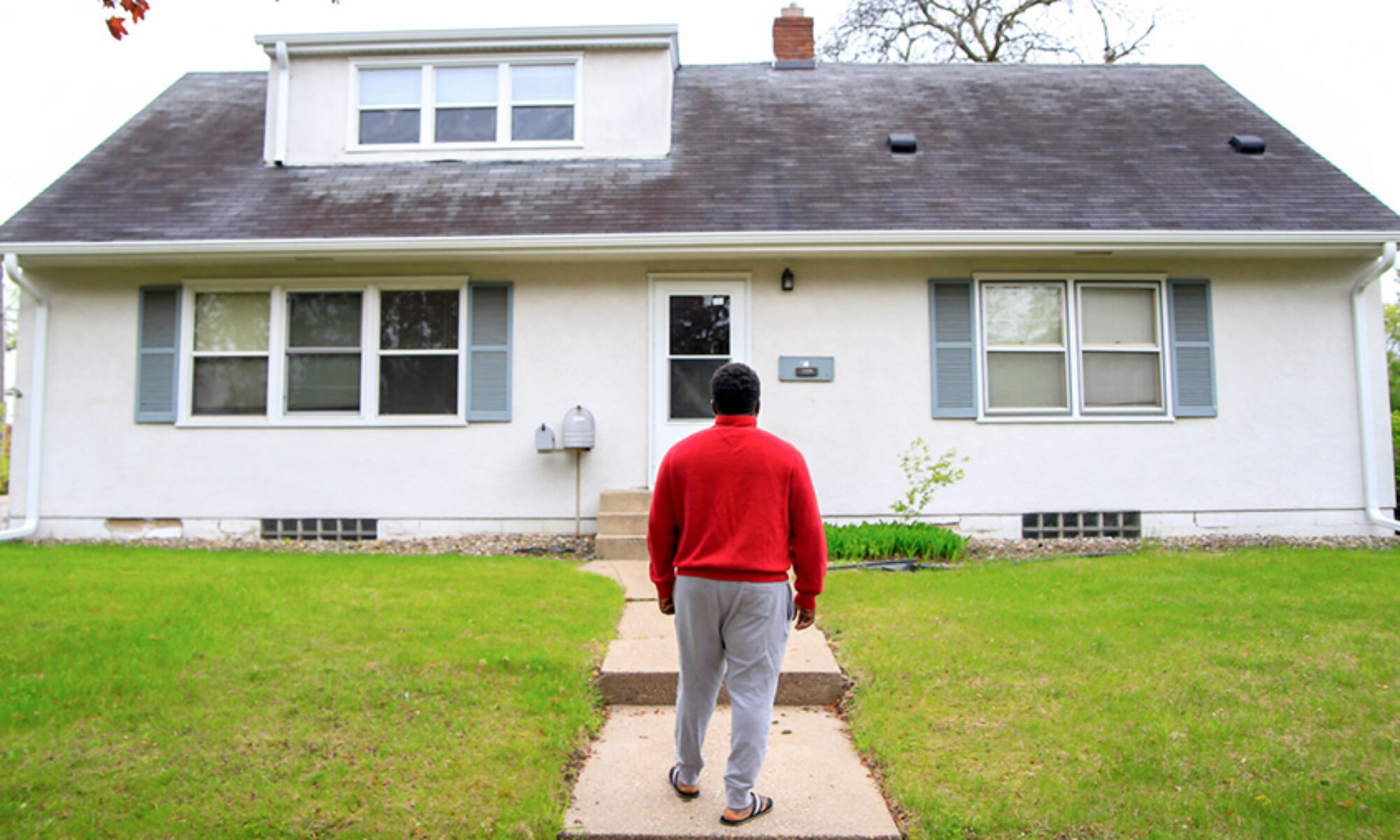
What’s your main role as staff at Jonathan House?
I’m the Jonathan House Program Manager, which means I’m responsible for the day-to-day operations of Jonathan House, including the program and the premises.
How did you first get involved in Jonathan House?
Tom, the president of IAFR, told me about Jonathan House after I had just returned from Italy where I’d been doing volunteer work with another organization. At that time, Jonathan House was just an idea; it didn’t exist yet. After my time in Italy, I was looking for a way to continue working with displaced people, and the idea of working here in the Twin Cities with Jonathan House appealed to me. It just felt like a good fit.
What’s something that everyone can do to help the cause of asylum-seeking individuals in the US?
I think it’s important to be well-informed. There’s a lot of misinformation out there because the immigration and asylum-seeking issue has been a fairly hot and trendy political topic for some time now. It can lead to false perceptions of people. I think it’s important to hear firsthand experiences from asylum-seekers themselves. There’s plenty of that stuff that can be found online, in podcasts, and in books. If I were to make a shameless plug, our website is a good place to start.
Is there a statistic or fact that has surprised you concerning asylum seeking individuals?
Concerning asylum-seekers in the United States, something that surprised me is how long they need to wait before they can get a work permit. It’s a minimum of 180 days, and that’s a minimum. It can take longer than that.
What is something asylum seeking individuals have taught us?
Gratitude. Just an appreciation for life and other things that I too often take for granted. I distinctly remember a friend who, every time he prayed, he always thanked God that we all woke up this morning, and he’d continue to say, “because some people went to bed last night and never woke up.” And I knew that that had been an actual reality for him. Those weren’t just empty words, and that’s something that’s always stuck with me: an appreciation and gratitude for just being alive.
Hobbies?
I love outdoor activities. This time of year, I spend a lot of time at the family farm making maple syrup. Really, anything that gets me out in the forest: backpacking, camping, rock climbing, canoeing, snow shoeing, etc.



